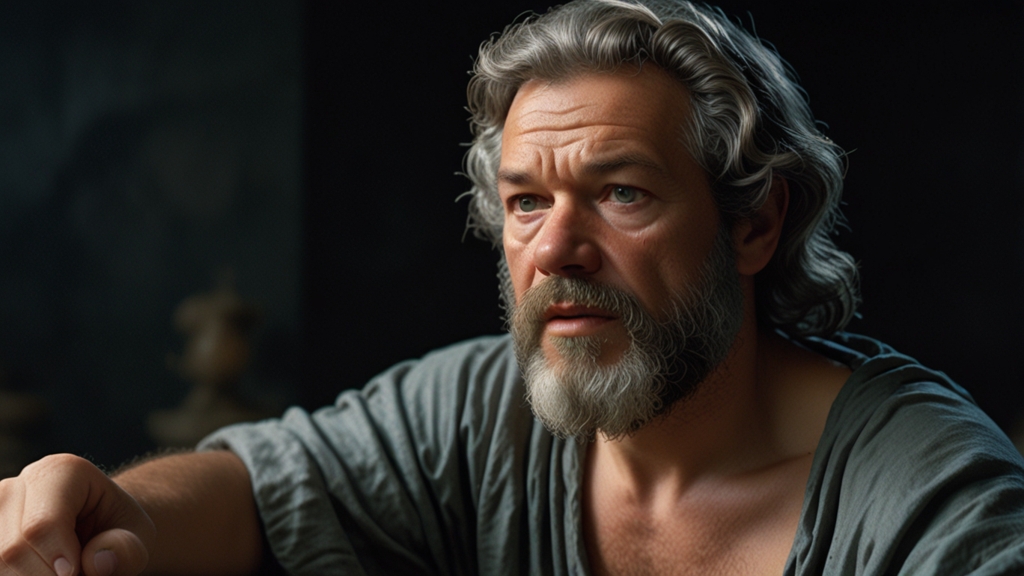A Philosophical Journey From Socrates to Today
The journey of Western philosophy begins with one towering figure: Socrates, the classical Greek philosopher who profoundly influenced Western thought. His ideas, methods, and philosophies have cascaded through time, impacting generations and shaping the intellectual landscape of today. Understanding this journey helps us appreciate how ancient philosophies still resonate in our modern lives.
Socrates: The Father of Western Philosophy
Socrates (470–399 BCE) is often considered the father of Western philosophy. Renowned for his unique approach to discourse, he employed a method now known as the Socratic method. Through a series of questions and answers, Socrates encouraged critical thinking and sought to expose the contradictions in his interlocutors' beliefs. His famous dictum, “The unexamined life is not worth living,” underscores his commitment to rational inquiry and self-examination.
"I cannot teach anybody anything. I can only make them think." - Socrates
Socrates' ideas were documented by his students, most notably Plato. Plato’s works, such as “The Republic,” further explored Socratic philosophy and laid the groundwork for Western political theory. Through Plato, Socrates' thinking influenced his own student, Aristotle, who would go on to make pioneering contributions to logic, metaphysics, and ethics.
The Medieval Synthesis
As we journey forward, philosophy evolved into the medieval period, where thinkers like Augustine and Thomas Aquinas sought to reconcile Christian theology with ancient Greek philosophy. Aquinas, for instance, harmonized Aristotelian philosophy with Christian doctrine, creating a comprehensive theological system that dominated medieval Europe. This synthesis demonstrated how ancient philosophical underpinnings could be adapted to new paradigms.
"To one who has faith, no explanation is necessary. To one without faith, no explanation is possible." - Thomas Aquinas
The Enlightenment and Beyond
The Enlightenment of the 17th and 18th centuries marked a dramatic shift. Thinkers like John Locke, Voltaire, and Immanuel Kant emphasized reason, science, and individual rights. Locke's theories of mind and personal identity, Voltaire's advocacy for civil liberties, and Kant's work on ethics and human autonomy all drew inspiration from ancient philosophical traditions while charting new territories.
Immanuel Kant’s critical philosophy questioned the very limits of human knowledge and introduced the concept of the 'categorical imperative,' which has become a cornerstone of ethical philosophy. His exploration of metaphysics, epistemology, and ethics significantly impacted subsequent philosophers and continues to be studied rigorously today.
Modern and Contemporary Philosophy
Philosophical thought continued to evolve into the 19th and 20th centuries with figures like Friedrich Nietzsche, who challenged traditional moral values and introduced the concept of the “Übermensch” or “Overman.” Nietzsche's work profoundly impacted existentialism, a movement further developed by Jean-Paul Sartre and Albert Camus, who grappled with themes of meaning, absurdity, and freedom in a seemingly indifferent universe.
In contemporary philosophy, analytic and continental traditions have offered diverse approaches. Analytic philosophy, with figures like Bertrand Russell, G.E. Moore, and Ludwig Wittgenstein, emphasizes clarity and logical rigor. On the other hand, continental philosophy, represented by thinkers like Michel Foucault, Jacques Derrida, and Jürgen Habermas, focuses on critique, power structures, and the complexities of human experience.
"The limits of my language mean the limits of my world." - Ludwig Wittgenstein
The Legacy of Socrates
The legacy of Socrates lives on in various forms. From the Socratic techniques used in modern teaching to the critical thinking skills emphasized in numerous disciplines, his influence is vast and enduring. Philosophical inquiry, as pioneered by Socrates, remains a vital tool for understanding ourselves and our place in the world.
Today, as we face unprecedented global challenges, the teachings of Socrates inspire us to question, reflect, and seek wisdom. While the journey from Socrates to the present day covers millennia and diverse schools of thought, the core principles of rational inquiry and self-examination remain as relevant as ever.
The philosophical journey from Socrates to today charts a path marked by continuous questioning and an unwavering quest for truth. As we advance further into the 21st century, this rich tradition continues to guide us, illuminating the path forward with the wisdom of the ages.









